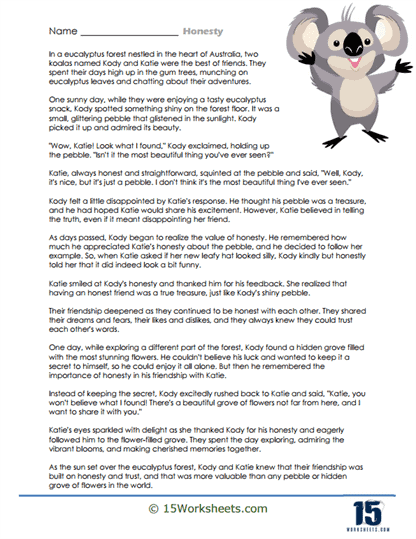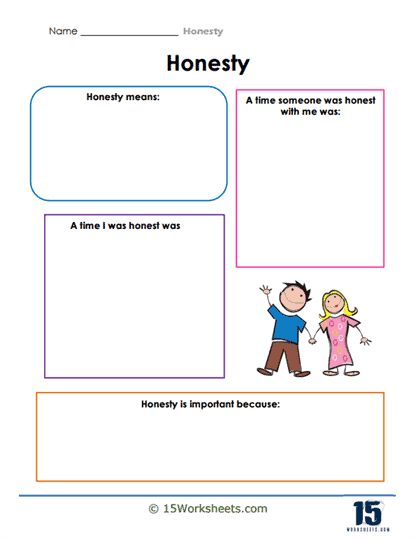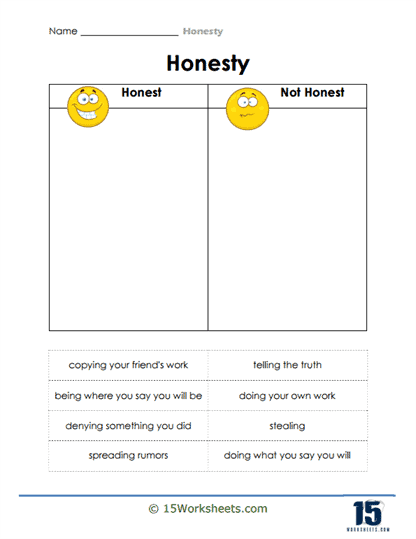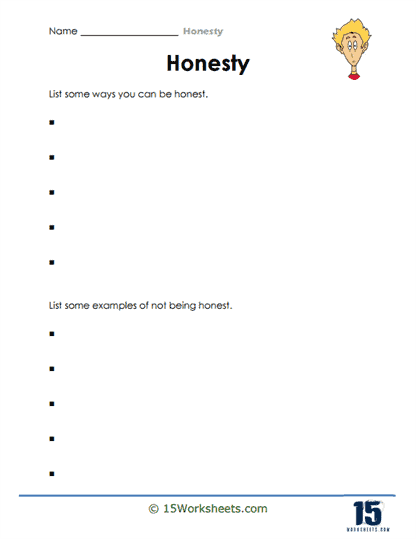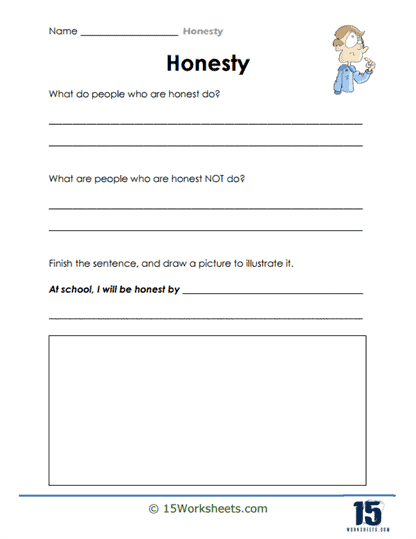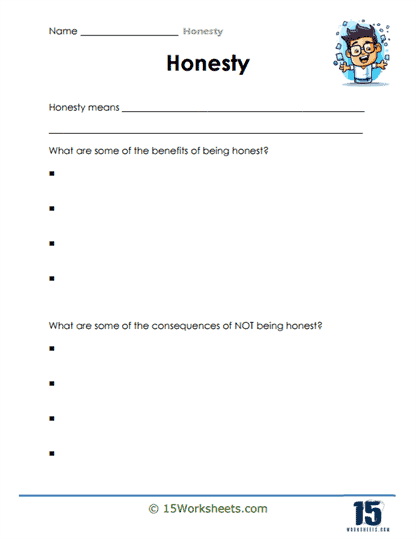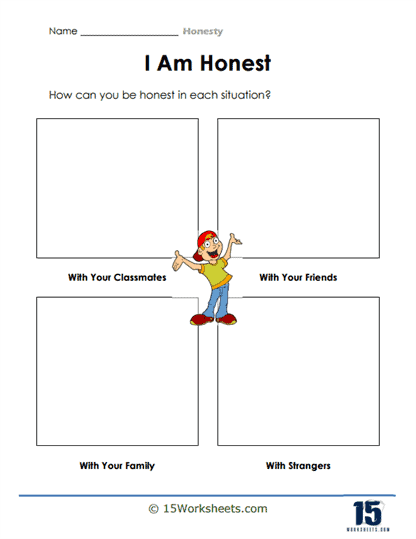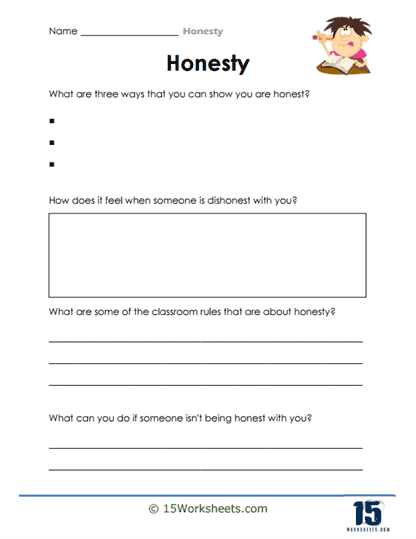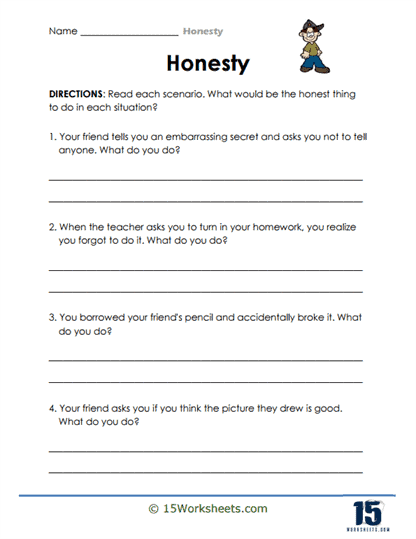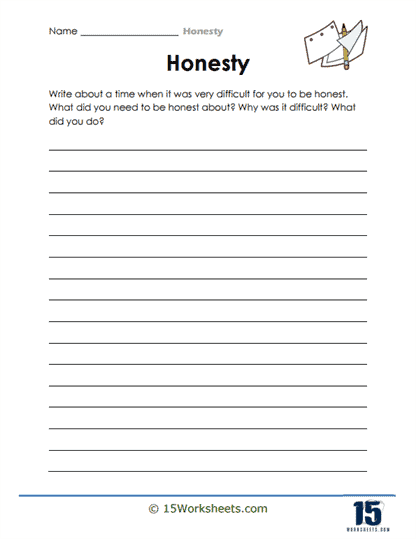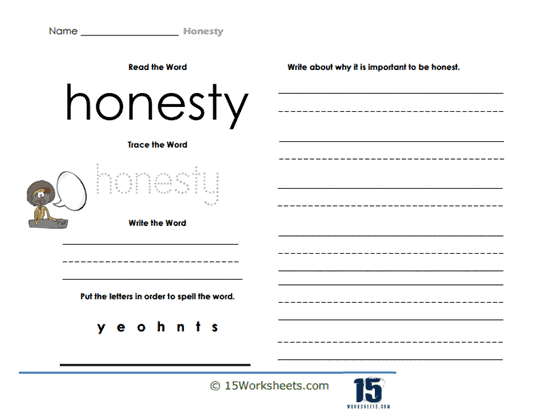Honesty Worksheets
All About These Worksheets
Honesty worksheets serve as tangible tools in the journey of character education. By presenting scenarios, facilitating reflections, and offering practice in honesty, these worksheets ensure a comprehensive approach to understanding and internalizing this crucial virtue. In a world where misinformation and deceit can be prevalent, instilling a deep-rooted sense of honesty in students becomes not just an educational goal but a societal imperative.
Honesty, often hailed as one of the best virtues, is the quality of being truthful, straightforward, and free from deceit. Teaching honesty is crucial, not just as a moral imperative but also as a fundamental skill for trust-building and effective communication in society. Honesty worksheets are pedagogical tools specifically crafted to guide individuals, especially students, in understanding, reflecting upon, and practicing honesty in various life scenarios. These worksheets often combine hypothetical situations with introspective exercises to nurture and promote honesty.
Types of Exercises
Truth vs. Lie Identification – These exercises differentiate between truthful statements and lies.
Example: A worksheet might present a series of statements, and students must categorize them as “truth” or “lie.”
Teaching Objective: Helps students discern between factual statements and falsehoods, reinforcing the foundational concept of honesty.
Reflective Scenarios – Presenting hypothetical situations where students must decide on an honest action.
Example: A scenario where a student finds a lost item in school and must decide whether to return it or keep it.
Teaching Objective: Promotes critical thinking about moral choices and helps students understand the implications of their actions.
Personal Reflection – Exercises that prompt introspection about past actions related to honesty.
Example: A worksheet might ask students to recall a time they were dishonest and the consequences that followed.
Teaching Objective: Enables students to learn from past mistakes and appreciate the importance of honesty in real-life situations.
Role-Playing Scripts – Detailed scenarios where students must act out roles, emphasizing honest interactions.
Example: A script where one student plays a shopkeeper and another plays a customer who’s been given too much change.
Teaching Objective: Allows students to practice honest behaviors in controlled environments, fostering both understanding and empathy.
Consequences Mapping – Exercises that explore the potential outcomes of honest and dishonest actions.
Example: A worksheet might outline a situation (e.g., cheating on a test) and ask students to map out short-term and long-term consequences.
Teaching Objective: Reinforces the idea that actions, whether honest or dishonest, have consequences that can impact oneself and others.
Honesty Affirmations – Crafting positive statements that emphasize the value of honesty.
Example: A worksheet might guide students to create affirmations like, “Being truthful makes me feel proud of myself.”
Teaching Objective: Reinforces a positive association with honesty and strengthens students’ moral compass.
Discussion Prompts – Questions or scenarios meant to spur group discussions about honesty.
Example: A prompt might ask, “Is there ever a situation where lying might be the right thing to do?”
Teaching Objective: Encourages students to think deeply about honesty’s complexities and nuances, fostering critical thinking and moral reasoning.
The Value of Honesty Worksheets
Moral Foundation – Honesty is a cornerstone of character education. These worksheets reinforce the significance of truthfulness, helping students build a strong moral foundation.
Skill Development – Beyond morality, honesty is also a life skill. Whether it’s maintaining relationships, conducting business, or simply navigating everyday scenarios, honesty plays a pivotal role.
Self-awareness – Through introspection and reflection, students can identify areas of improvement, helping them grow as honest individuals.
Community Building – A collective emphasis on honesty fosters trust and understanding in classrooms and communities, creating more harmonious environments.

